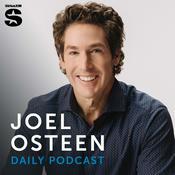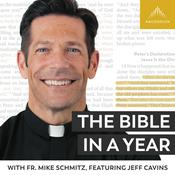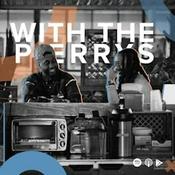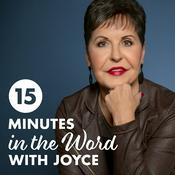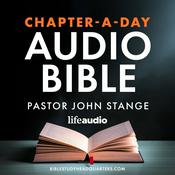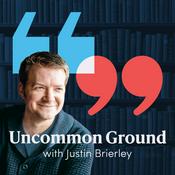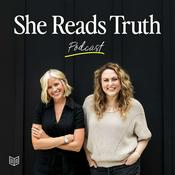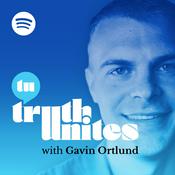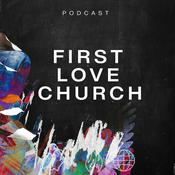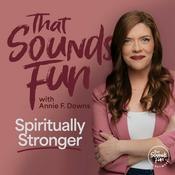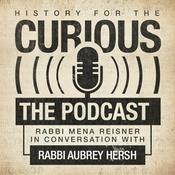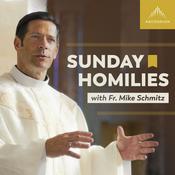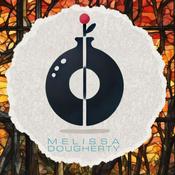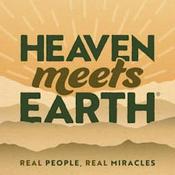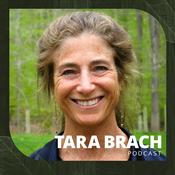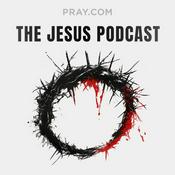36 episodes
- See you soon - I'll miss you! Make sure you're subscribed so you know when Soul Gum is back.
WHERE TO FIND ME:
MAKE BELIEVE is out everywhere now
Get a signed copy of MAKE BELIEVE from Blue Willow Bookshop (write “REQUEST FOR SIGNED COPY” in the order notes!)
Join the waitlist for future retreats!
Practice yoga with me at Shanti Yoga Houston on the last Sunday of every month!
Find me @thedailyvictorian on Instagram
Find me @thedailyvictorian on TikTok - Everyone wants love, but no one can tell you exactly what love is. In this episode, we deep dive into seven philosophical perspectives on love, ranging from the Ancient Greeks to the existentialists. If you’re curious whether Plato thought soulmates were real or Kierkegaard would tell you to text your ex, this episode is for you.
EPISODE OUTLINE
00:00 Intro (the philosophy of love)
03:19 What even is love? (hypotheticals on love)
07:07 Ancient Greek philosophy on love
07:35 Origins of the concept of soulmates (Plato’s The Symposium)
09:03 Socrates’ ladder of love
13:03 Enlightenment thinkers on love
13:15 Love as social performance (Rousseau)
13:58 Rousseau’s two types of self love
15:22 How self love affects how you love others
17:31 The humanity formula (Kant)
19:49 Practical vs. passionate love (Kant)
22:07 Love as a trick (Schopenhauer)
24:04 Why do opposites attract? (Schopenhauer)
24:28 Is love just biological encouragement to reproduce? (Schopenhauer)
26:06 Existentialists on love
26:14 The tension between love and freedom of choice (Sartre)
27:50 Love as an objectifying force (Sartre)
30:32 Jean Paul Sartre and Simone de Beauvoir’s non-monogamous love story
31:40 The relationship between love and possession (de Beauvoir)
33:06 How your fear of being seen impacts your ability to give and receive love (Sartre, Doestoevsky, de Beauvoir)
36:54 Kierkegaard’s Works of Love
37:22 Unreasonable standards in love (Kierkegaard)
42:24 Lightning round recap
MENTIONED IN THIS EPISODE
Plato, The Symposium (c. 385–370 BCE)
Jean-Jacques Rousseau, The Social Contract (1762)
Immanuel Kant, Groundwork of the Metaphysics of Morals (1785)
Immanuel Kant, The Metaphysics of Morals (1797)
Arthur Schopenhauer, The World as Will and Representation (1818)
Søren Kierkegaard, Works of Love (1847)
Fyodor Dostoevsky, Notes from Underground (1864)
Jean-Paul Sartre, Being and Nothingness (1943)
Jean-Paul Sartre, No Exit (1944)
Simone de Beauvoir, The Second Sex (1949)
Gordon Marino, The Existentialist’s Survival Guide (2018)
MY LINKS
MAKE BELIEVE is out everywhere now
Get a signed copy of MAKE BELIEVE from Blue Willow Bookshop (write “REQUEST FOR SIGNED COPY” in the order notes!)
Join the waitlist for future retreats!
Practice yoga with me at Shanti Yoga Houston on the last Sunday of every month!
Find me @thedailyvictorian on Instagram
Find me @thedailyvictorian on TikTok - Ever wonder why some people seem to have endless creativity while you’re stuck with half-baked ideas that never make it out of your Notes app? In this episode, we explore the habits, tips and artistic processes of creative geniuses ranging from Plato and Picasso to Mary Oliver and Rick Rubin. I reveal the 7 secrets of creative geniuses that helped me stop chasing perfection, relight my creative spark, and actually enjoy the process of making art. If you’re ready to stop gatekeeping your own creativity, this one’s for you.
EPISODE OUTLINE
00:00 Intro: Why creativity matters for everyone (not just artists)
03:58 1. Great creatives don’t let perfection be the enemy of creation (Plato’s Republic, perfection vs. forms, Ira Glass on “the gap”)
11:28 2. They separate creation, refinement, and critique (Rick Rubin, The Creative Act)
14:41 3. They focus on next possibilities, not ultimate goals (Stuart Kauffman’s adjacent possible, evolutionary biology, Bhagavad Gita, Rick Rubin on artistry vs. craftsmanship)
20:56 4. They embrace flow and anti-flow (Mihaly Csikszentmihalyi on flow state; Mary Oliver’s editing process; Stanley Kubrick’s many takes)
25:52 5. They thrive under constraints (Barry Schwartz’s paradox of choice; Mary Oliver writing Wild Geese as a constraint exercise; Parkinson’s Law)
30:35 6. They know that if they don’t create it, someone else will (Rick Rubin on how ideas move, Elizabeth Gilbert’s hand-off story with Ann Patchett)
34:01 7. They know that no one really knows (Socrates on knowing nothing, imposter feelings, why your contributions matter)
37:57 Lightning round recap
MENTIONED IN THIS EPISODE
• Plato, The Republic
• Studies on the impact of perfectionism on performance and creativity (2022 and 2025)
• Rick Rubin, The Creative Act: A Way of Being
• Stuart Kauffman, At Home in the Universe
• Mihaly Csikszentmihalyi, Flow: The Psychology of Optimal Experience
• Mary Oliver, A Poetry Handbook; “Wild Geese”; On Being interview with Krista Tippett
• Barry Schwartz, The Paradox of Choice
• Elizabeth Gilbert, Big Magic: Creative Living Beyond Fear
MY LINKS
• MAKE BELIEVE is out everywhere now
• Get a signed copy of MAKE BELIEVE from Blue Willow Bookshop (write “REQUEST FOR SIGNED COPY” in the order notes!)
• Join the waitlist for future retreats!
• Practice yoga with me at Shanti Yoga Houston on the last Sunday of every month!
• Find me @thedailyvictorian on Instagram
• Find me @thedailyvictorian on TikTok - What happens when your faith collapses? In this episode, I share my story of spiritual deconstruction and how I learned to believe again—sort of. This isn’t a “how to get your faith back” story. It’s the story of tearing my faith down to the studs, sifting through the rubble, and deciding what was worth keeping. We’ll talk god shaped holes, Kierkegaard, Camus, Pascal’s wager, and the surprising peace of not needing all the answers. This episode if for anyone who is currently filling their god-shaped hole with TikTok marathons, self-help books and spiral-inducing questions. If you started at church camp and have landed in full-blown nihilism, press play.
EPISODE OUTLINE
00:00 Intro: the story of how I lost my faith and got it back (sort of)
08:01 1. Why spiritual crises often happen at the worst possible time
10:35 How my own spiritual crisis began
18:07 Kierkegaard on despair and the self
19:47 2. Why spiritual health gets worse before it gets better
26:19 The delight of spiritual curiosity
27:43 3. Choosing how to fill the God shaped hole
29:42 Absurdism and optimistic nihilism (Camus)
30:57 Pascal’s Wager explained and what it gets wrong
32:51 Approaching belief pragmatically (belief as a choice)
33:53 What “god” means to me now
35:33 Can you make yourself believe? Should you?
36:16 On stepping in the same river twice (Heraclitus)
36:49 Five reflection questions (Rainn Wilson)
38:14 Lightning round recap
MENTIONED IN THIS EPISODE
Søren Kierkegaard, The Sickness Unto Death (1849)
Rhett McLaughlin’s Spiritual Deconstruction Story
Blaise Pascal, Pensées (1670)
St. Augustine, Confessions (c. 400 CE)
Albert Camus, The Myth of Sisyphus (1942)
Heraclitus, Fragment 49a (c. 500 BCE)
Rainn Wilson, Soul Boom (2023)
Mary Oliver, Upstream: Selected Essays (2016)
MY LINKS
• Listen to my episode of Soul Boom with Rainn Wilson on Spotify
• Watch my episode of Soul Boom with Rainn Wilson on Youtube
• MAKE BELIEVE is out everywhere now
• Get a signed copy of MAKE BELIEVE from Blue Willow Bookshop (write “REQUEST FOR SIGNED COPY” in the order notes!)
• Join the waitlist for future retreats!
• Find me @thedailyvictorian on Instagram
• Find me @thedailyvictorian on TikTok
RESOURCES
• Chat with a Trevor Project counselor now
• ANAD helpline
• 988 lifeline - Confrontation is hard. But avoiding it is harder—on your peace, your relationships, and your self-respect. In this episode, explore how to get better at having tough conversations. We’ll look to Aristotle, Joan Didion, and the Gottman institute’s world-renowned research on conflict to create a roadmap for navigating confrontation without abandoning yourself or bulldozing anyone else. If you spiral after hitting send, avoid awkward conversations for weeks while playing out fake arguments in the shower, or disassociate every time someone says “we need to talk,” this one's for you.
EPISODE OUTLINE
00:00 Intro
05:19 1. The correlation between confrontation and respect
06:27 Joan Didion On Self Respect
08:47 The trolley problem (Foote)
14:33 2. Approaching confrontation practically
16:33 Phronesis (Aristotle)
18:35 Kant’s categorical imperative
20:50 Thich Nhat Hanh’s three gates
23:27 3. Confrontation dos and don’ts
23:49 the Gottman institute
24:44 Confrontation don’ts
26:14 Confrontation dos
26:17 The magic ratio for healthy relationships
26:53 Bids for attention
27:59 Soft startups
29:08 Repair attempts
32:09 Lightning round recap
MENTIONED IN THIS EPISODE
Joan Didion, On Self Respect (Vogue, 1961)
Aristotle, Nichomachean Ethics (c. 350 BCE)
Immanuel Kant, Groundwork for the Metaphysics of Morals (1785)
Thích Nhất Hạnh, The Art of Communicating (2013)
Drs. John & Julie Gottman, The Seven Principles for Making Marriage Work (1999)
MY LINKS
MAKE BELIEVE is out everywhere now
Get a signed copy of MAKE BELIEVE from Blue Willow Bookshop
Join the waitlist for future retreats!
Find me @thedailyvictorian on Instagram
Find me @thedailyvictorian on TikTok
More Religion & Spirituality podcasts
Trending Religion & Spirituality podcasts
About Soul Gum
A self-development podcast with philosophical, psychological and literary flair hosted by Victoria Hutchins, the creator of @thedailyvictorian. Season 3 coming soon.
Podcast websiteListen to Soul Gum, Joel Osteen Podcast and many other podcasts from around the world with the radio.net app

Get the free radio.net app
- Stations and podcasts to bookmark
- Stream via Wi-Fi or Bluetooth
- Supports Carplay & Android Auto
- Many other app features
Get the free radio.net app
- Stations and podcasts to bookmark
- Stream via Wi-Fi or Bluetooth
- Supports Carplay & Android Auto
- Many other app features


Soul Gum
Scan code,
download the app,
start listening.
download the app,
start listening.

